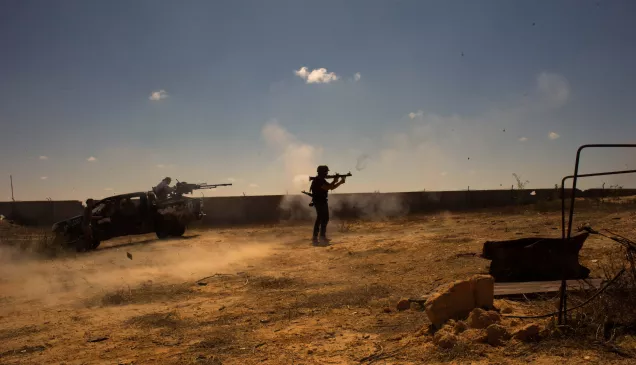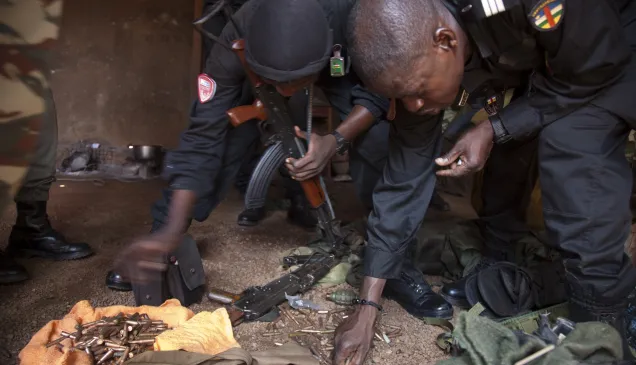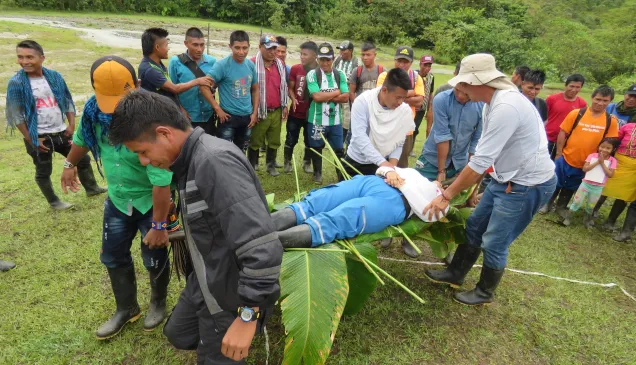ICRC Statement: The Impact of Diversion and Trafficking of Arms on Peace and Security
ICRC Statement to United Nations Security Council Open Debate on the Impact of Diversion and Trafficking of Arms on Peace and Security delivered by Ms. Laetitia Courtois, Head of Delegation and Permanent Observer
Mr. President,
The International Committee of the Red Cross (ICRC) is grateful for the opportunity to address the Security Council and welcomes the attention to the impact of diversion and trafficking of small arms and light weapons on peace and security.
Contemporary armed conflicts tend to be protracted, fueled by a steady inflow of arms and ammunition, and are rarely fought alone, leading to a diffusion of responsibilities, fragmented command chains and unchecked flows of weapons.
Every day, the ICRC witnesses the suffering caused by the widespread availability, poor regulation and misuse of arms and ammunition. We see high levels of armed violence and insecurity. Medical and humanitarian assistance is hindered or halted. Humanitarian impacts are often gendered – including when weapons are used to commit or facilitate sexual and gender-based violence. Too often children are victims of violence.
In South Sudan, our surgical teams have cared for a staggering 9,000 patients wounded by weapons over the last decade. And a quarter of those treated for gunshot wounds have been women or children. More than 40,000 wounded Afghans have been treated at ICRC-supported medical facilities over the past months. It is heartbreaking to see our wards filled with people who have lost limbs, particularly children.
Despite advances made in regulating the international arms trade, including the adoption of the Arms Trade Treaty in 2013, weapons and ammunition continue to be supplied in large numbers to parties of armed conflicts – States and non-state armed groups alike – and diverted to unauthorized end users and end uses. There is a gap between the obligations assumed by States under international law and the arms transfer practices of too many States.
The problem of small arms and light weapons must be addressed in a manner that mitigates the risks from small-arms violence and assists victims. Towards this aim, the ICRC encourages States to:
• First, adhere to the abundant instruments existing related to small arms and light weapons as well as other conventional arms and to faithfully implement them, including the ATT.
• Second, States that support warring parties must leverage their influence and mitigate adverse humanitarian consequence. Take steps to better manage arms stockpiles, ensure recipients have training and means to adhere to IHL and human right obligations, and safeguard arms transfers so that no arms are transferred if there is a clear risk that international humanitarian law or human rights law would be violated.
Failing to manage the supply chain, without regard to how weapons will be used, is putting a dirt-cheap price on the lives of civilians.
We urge states to take an honest look at how actions and inactions perpetuate violations, insecurity and suffering. The well-being of millions of people depends on this.
Thank you.



